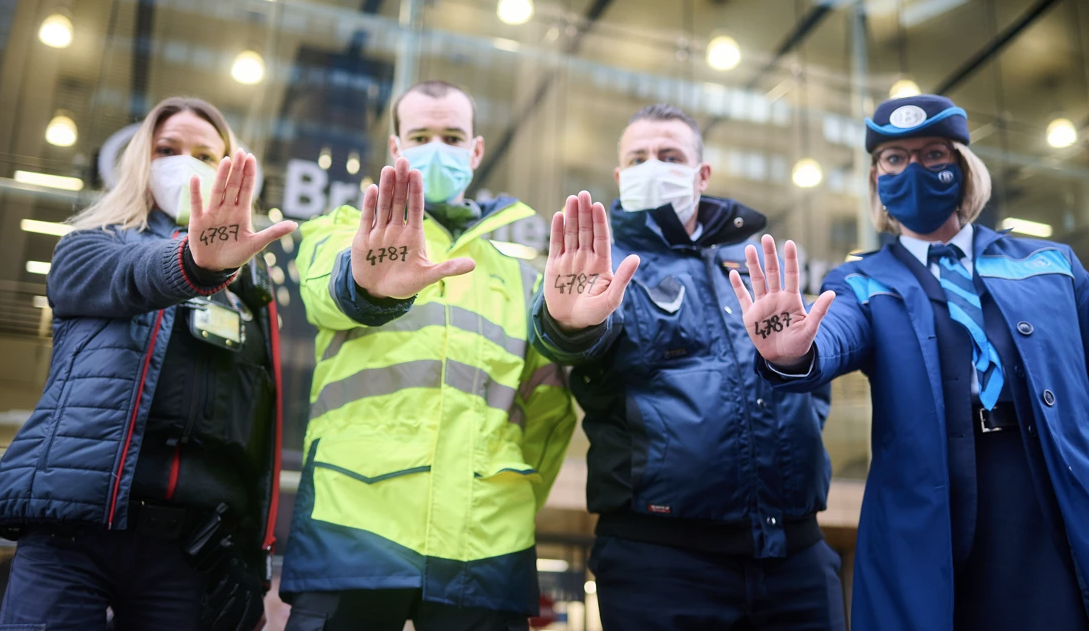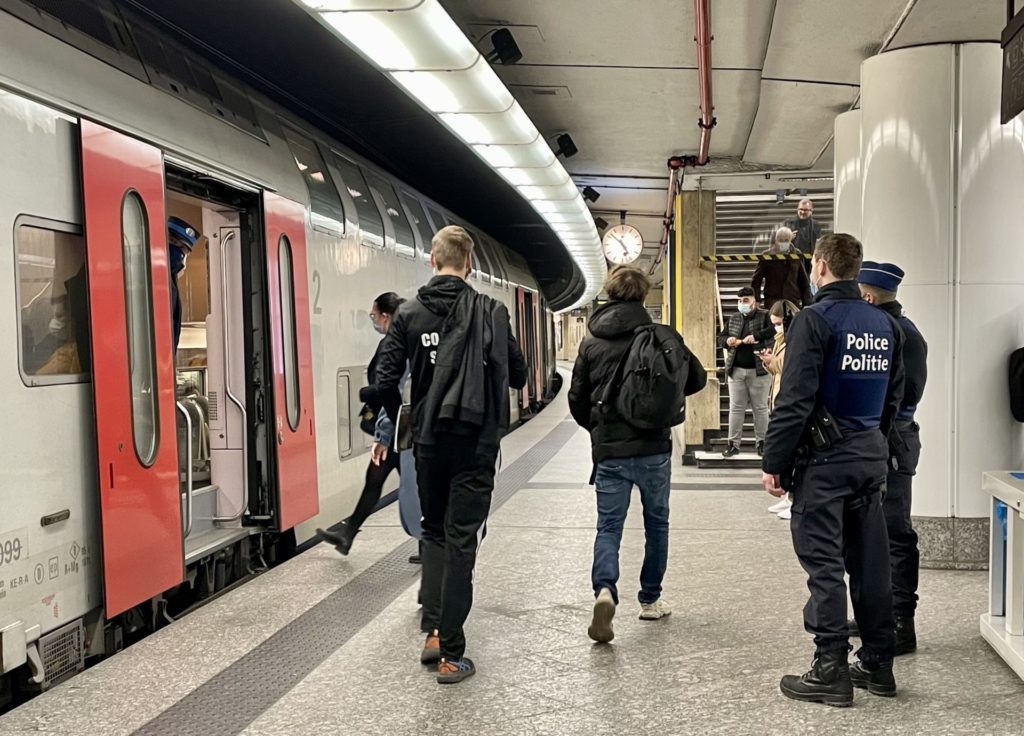Public transit staff across Belgium are facing an average of 13 cases of aggression per day, with 4,787 attacks in 2021, according to a press release from Belgian railway company SNCB.
The figure is rising, and reflects an increase in verbal and physical assaults on staff from SNCB, Brussels’ transit network STIB, Flemish network De Lijn and the Wallonian TEC.
“These colleagues are fathers and mothers, sons and daughters,” said STIB CEO Brieuc de Meeûs in a statement.
“They are there for us, in all circumstances – they never stop, not even in times of pandemic. They deserve respect and thanks, not blows and insults. Such aggression is revolting and deeply unfair. We will ensure that the perpetrators are held accountable for their actions.”
Violent assaults create lasting psychological impact
The number of attacks against public transit employees has risen 23% since 2020, and agencies say the violence has a significant psychological impact and results in many people being unable to work.
Not a day goes by without a staff member being assaulted, whether that’s a train attendant, bus, tram or metro driver, security guard, passenger information officer or ticket office staff.
Related News
- SNCB announces gradual return to normal service
- Aggression against STIB employees ‘a daily occurrence’
- Residents say violence and crime getting out of hand in Brussels-North station
Agencies called the figures worrying. On average, 25% were physical assaults, with assault and violence, and 75% involved verbal assaults, with threats and insults. Numbers of physical assaults were even higher for SNCB staff, who accounted for 4 out of 10 in those figures.
The main causes of aggression are discussions with passengers who do not have a valid ticket, and interactions related to the non-respect of sanitary measures stemming from the pandemic. There are also breaches of internal regulations, gratuitous assaults and disruptive behaviour.
Pandemic fuels assaults on transit staff
The health crisis is polarising society and putting pressure on the way people live together, the agencies said in their statement, adding that various situations of tension between passengers are linked to the respect of sanitary measures.
“At the beginning of the pandemic, our employees received a lot of praise for continuing to get around even in difficult times, for continuing to fulfil their social role for all those who really needed it. This is in stark contrast to the verbal and physical assaults that our staff regularly face in the course of their work,” said Ann Schoubs, CEO De Lijn.
“The virus has not made things any easier. Every case of aggression is one too many. There is no vaccine against this scourge, but mutual respect and understanding of each other's integrity, both between drivers and passengers and between passengers themselves, will go a long way to making public transport pleasant, safe and efficient for all.”

Photo from SNCB.
In 2021, incidents of assaults caused a total of almost 440 accidents at work for the four companies.
The violence leads to numerous work incapacities and therefore has an impact on the availability of staff and, consequently, on the service of trains, metros, trams and buses, agencies explained.
There were 11,433 days of incapacity for work due to physical and verbal aggression for all employees in the public transport sector in 2021.
A plea for stricter consequences
The four operators are asking that the courts prosecute all acts of aggression and apply a zero tolerance policy.
For each assault, agencies offer legal assistance to their employees based on the elements of the case, supporting them in filing a complaint. Companies also open a case in their own name if they have suffered damage, usually as a result of disruption to public transport.
Cases with criminal judgements may end in prison sentences, both suspended and suspended, and attackers also face financial penalties or community service. Assaults on public service staff are considered an aggravating circumstance, with a doubling of the penalty.
“Together with my colleagues in public transport, we call for respect and strongly condemn every aggression against them,” said Sophie Dutordoir, CEO of the SNCB.
“Through the intermediary of the Public Prosecutor's Office, the SNCB has insisted that any act of aggression be prosecuted and that zero tolerance be applied. Any form of aggression towards staff or towards our passengers is unacceptable: transport is a place of life and exchange where everyone should feel good.”

